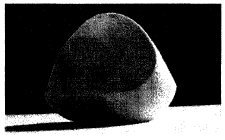In Coty v Amazon, the Court ruled that "a person who, on behalf of a third party, stores goods which infringe trade mark rights, without being aware of that infringement, must be regarded as not stocking those goods in order to offer them or put them on the market for the purposes of those provisions, if that person does not itself pursue those aims".
The Court was addressing a question referred from Germany in a dispute between Coty and Amazon over third-party sales of bottles of Davidoff perfume on Amazon's marketplace (Coty Germany GmbH v Amazon Services Europe Sarl and Others, Case C-567/18).
The Court said that "using" a trade mark involves "active behaviour" and that Amazon did not use the sign in its own communication. The Court's judgment is slightly at odds with the Advocate General's Opinion in the case, which considered a person storing goods could be "actively involved in their distribution" within the framework of a programme such as Shipped by Amazon.
 In its judgment in Gomboc Kutato, Szolgaltato es Kereskedelmi Kft. v Szellemi Tulajdon Nemzeti Hivatala (Case C-237/19), the Court was asked to rule on a question referred by Hungary's Supreme Court concerning Article 3 of the Trade Mark Directive 2008/95, and in particular whether the assessment of whether a sign "consists of the shape of the product which is necessary to obtain a technical result" should be based only on the graphic representation in the application or if the perception of the relevant public should also be taken into consideration. The mark applied for is pictured above.
In its judgment in Gomboc Kutato, Szolgaltato es Kereskedelmi Kft. v Szellemi Tulajdon Nemzeti Hivatala (Case C-237/19), the Court was asked to rule on a question referred by Hungary's Supreme Court concerning Article 3 of the Trade Mark Directive 2008/95, and in particular whether the assessment of whether a sign "consists of the shape of the product which is necessary to obtain a technical result" should be based only on the graphic representation in the application or if the perception of the relevant public should also be taken into consideration. The mark applied for is pictured above.
The Court said that the assessment does not have to be limited to the graphic representation: "Information other than that relating to the graphic representation alone, such as the perception of the relevant public, may be used in order to identify the essential characteristics of the sign at issue. However, while information which is not apparent from the graphic representation of the sign may be taken into consideration in order to establish whether those characteristics perform a technical function of the goods in question, such information must originate from objective and reliable sources and may not include the perception of the relevant public."
It added that "the perception or knowledge of the relevant public as regards the product represented graphically by a sign that consists exclusively of the shape of that product may be taken into consideration in order to identify an essential characteristic of that shape".
 Gugler France v European Union Intellectual Property Office (Case C-736/18 P) was an unusual case arising from Gugler GmbH's registration of an EUTM for a figurative sign comprising the word GUGLER. The other party in the case, Gugler France, sought to invalidate the registration on the basis of bad faith and its company name, which is protected in France. After years of litigation, the EU General Court found that the "economic link" between the two companies at the time the application for registration was filed precluded any finding of a likelihood of confusion.
Gugler France v European Union Intellectual Property Office (Case C-736/18 P) was an unusual case arising from Gugler GmbH's registration of an EUTM for a figurative sign comprising the word GUGLER. The other party in the case, Gugler France, sought to invalidate the registration on the basis of bad faith and its company name, which is protected in France. After years of litigation, the EU General Court found that the "economic link" between the two companies at the time the application for registration was filed precluded any finding of a likelihood of confusion.
The Court of Justice has upheld that finding, saying that the General Court was correct to conduct the examination of whether an economic link exists globally, taking into account all the relevant circumstances. In this case, there was evidence of business relations between the two companies, including a distribution agreement, share ownership and a licence agreement. The Court said that the concept of economic links "refers to a substantive, rather than formal, criterion - which, in particular, is also fulfilled where, following the division of national parallel trade marks resulting from a territorially limited assignment, the proprietors of those marks coordinate their commercial policies or reach an agreement in order to exercise joint control over the use of those marks, so that it is possible for them to determine, directly or indirectly, the goods to which those marks are affixed and to control the quality of those goods".
 Issue 112
Issue 112
 Issue 112
Issue 112